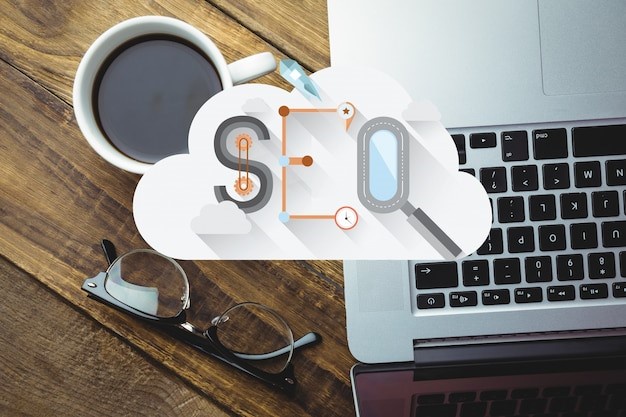Inbound marketing is a crucial component of any business, but it's especially valuable for those with a digital presence. The more your website and social media accounts are shared by others, the better chance they have of getting found by potential customers.
However, without an effective inbound marketing strategy, your efforts may not be reaching their full potential. That's why you need to hire an SEO service provider to help you reach more customers and ensure they stay engaged after visiting your site or social media accounts.
Search Engine Optimization
SEO, or search engine optimization, is the practice of increasing the quantity and quality of traffic to a website through organic search engine results. This is achieved by improving the website's ranking on search engine results pages (SERPs) for specific keywords or phrases.
In inbound marketing, SEO plays a crucial role in attracting potential customers to a website through organic search. It helps to ensure that the website is easily discoverable by the target audience and that its content is relevant and valuable. By incorporating SEO strategies into an inbound marketing plan, businesses can improve their online visibility, drive more targeted traffic to their site, and ultimately increase conversions and revenue.
-
Keyword research and analytics
Keyword research is the foundation of search engine optimization (SEO). It involves identifying keywords or phrases that are relevant to a business and its target audience and determining the level of competition for each of those keywords.
The purpose of keyword research is to understand what people are searching for online and what keywords or phrases are likely to drive the most traffic to a website. This information can then be used to inform the creation of high-quality, keyword-optimized content and to guide on-page optimization efforts.
Keyword research can be conducted using a variety of tools, including keyword research software, Google AdWords Keyword Planner, and Google Trends. Effective keyword research should consider not only the popularity of a keyword, but also its relevance to the business and the level of competition for that keyword. This information can then be used to determine the most effective keywords to target in an SEO strategy.
-
On-Page Optimization
On-Page optimization refers to the techniques and practices used to optimize individual web pages in order to rank higher and earn more relevant traffic in search engines. The goal of on-page optimization is to make each page of a website as relevant and user-friendly as possible. Here are the key elements of on-page optimization:
-
Content Optimization
One of the most important elements of on-page optimization is content optimization. When optimizing content, it’s important to consider the following factors:
- Keyword density
- Relevance of content to target keywords
- Internal linking
- Content length and structure
-
Image Optimization
Images are an important part of a website, and it’s important to optimize them for both users and search engines. When optimizing images, it’s important to consider the following factors:
- Proper use of alt tags
- Image file size optimization
- Image compression
- Proper use of image captions
-
Header tags
Header tags help structure the content of a page and help search engines understand the hierarchy of the content. When optimizing header tags, it’s important to consider the following factors:
- Proper use of H1, H2, and H3 tags
- Relevance of header tags to content
- Consistency in the use of header tags
-
Titles and Meta Descriptions
Titles and meta descriptions are an important part of on-page optimization, as they provide users with a brief summary of the content of a page. When optimizing titles and meta descriptions, it’s important to consider the following factors:
- Writing compelling and relevant titles
- Crafting meta descriptions that attract clicks
- Proper use of target keywords in titles and meta descriptions
-
Technical SEO
Technical SEO is the process of optimizing your website for search engines. It's more than just ensuring you have keywords in the right places; it's about making sure that when users search, they can find what they're looking for as quickly and easily as possible.
Technical SEO helps with crawl efficiency, page load time, indexation, and ranking factors such as site speed optimization (SEO), content quality/freshness (Q&A), internal links structure & external links structure which all affect how well your website ranks in search results pages. Technical SEO involves optimization of the underlying technical aspects of a website in order to rank higher and earn more relevant traffic in search engines.
- Website structure, including site navigation and architecture, URL structure, mobile optimization, and the use of sitemaps.
- Server configuration, which involves server response time, use of a Content Delivery Network (CDN), use of HTTP status codes, and Use of redirects
- Website Speed, including page load time, use of browser caching, minimization of code, and optimization of images
-
Link Building
Link building is a crucial aspect of search engine optimization (SEO) as it helps improve the visibility and ranking of a website in search engines. It involves acquiring backlinks from other websites to your own website.
-
Link Acquisition
Some link acquisition techniques used commonly are:
- Guest Blogging
- Broken Link Building
- Link Reclamation
-
Link Quality
The quality of the link is an important factor to consider while building links for SEO. Here are some factors to consider to ensure the quality of backlinks:
- Relevance
- Authority
- Natural Link Profile
Link building is essential to the success of any inbound marketing strategy. By acquiring high-quality backlinks from relevant and authoritative websites, you can help improve your website’s visibility and search engine rankings. A well-rounded link-building strategy should include a combination of link acquisition, link quality optimization, and link outreach efforts.
-
Local SEO
Local SEO refers to the process of optimizing a website to rank higher in local search results. This is especially important for businesses with physical locations, as they want to be easily found by potential customers in their local area.
Google My Business
- Claim and verify your listing: Creating a Google My Business listing and verifying it is the first step to optimizing your website for local search results.
- Optimize your listing: Optimizing your Google My Business listing with accurate and complete information can help improve your visibility in local search results.
- Encourage customer reviews: Encouraging customers to leave reviews on your Google My Business listing can help improve your visibility and reputation in local search results.
Local Citations
- Claim and update local citations: Local citations are mentions of your business on other websites, and claiming and updating these citations can help improve your visibility in local search results.
- Consistent NAP information: Consistent NAP (Name, Address, Phone number) information across all local citations is important for improving your visibility in local search results.
On-Page Optimization
- Use location-specific keywords: Including location-specific keywords in your website’s content and meta tags can help improve your visibility in local search results.
- Include local content: Including local content, such as information about your local community and events, can help improve your visibility in local search results.
Local SEO is a critical component of any inbound marketing strategy for businesses with physical locations. By optimizing your website for local search results, you can increase your visibility and attract more local customers. Implementing a comprehensive local SEO strategy, including Google My Business optimization, local citation management, and on-page optimization, can help improve your website’s local search rankings and drive more local traffic to your website.
- Analytics and reporting
Analytics and reporting are essential components of any inbound marketing strategy, as they help measure the success of your efforts and inform future decisions.
Website Analytics
- Google Analytics: Google Analytics is a free tool that provides insights into website traffic, user behavior, and conversions.
- Custom Dashboards: Custom dashboards can be created in Google Analytics to track key metrics, such as traffic sources, conversion rates, and landing page performance.
Key Performance Indicators (KPIs)
- Traffic: Measuring website traffic is a key KPI for any inbound marketing strategy, as it provides insight into the success of your efforts to attract visitors to your website.
- Conversion Rates: Conversion rates measure the number of website visitors who take a desired action, such as filling out a form or making a purchase.
- Lead Generation: Measuring lead generation is a key KPI for inbound marketing strategies that focus on attracting and converting leads.
Reporting
- Regular Reporting: Regular reporting can be done on a monthly or quarterly basis to provide insights into the success of your inbound marketing efforts and inform future decisions.
- Custom Reporting: Custom reporting can be created to track specific metrics, such as the performance of a particular landing page or campaign.
Analytics and reporting are critical to the success of any inbound marketing strategy. By tracking key performance indicators and regularly reporting on the success of your efforts, you can make informed decisions and adjust your strategy as needed to achieve better results. Utilizing website analytics tools, such as Google Analytics, and tracking key performance indicators, such as traffic and conversion rates, can help provide valuable insights into the success of your inbound marketing efforts.
Conclusion
SEO is a vital part of your inbound marketing strategy, and it can help you get more leads and sales. We hope that this article has given you some ideas about how to use SEO services to improve your website's performance. If you have any questions or want more information on how we can help with your SEO needs, please contact us today!


No comments yet